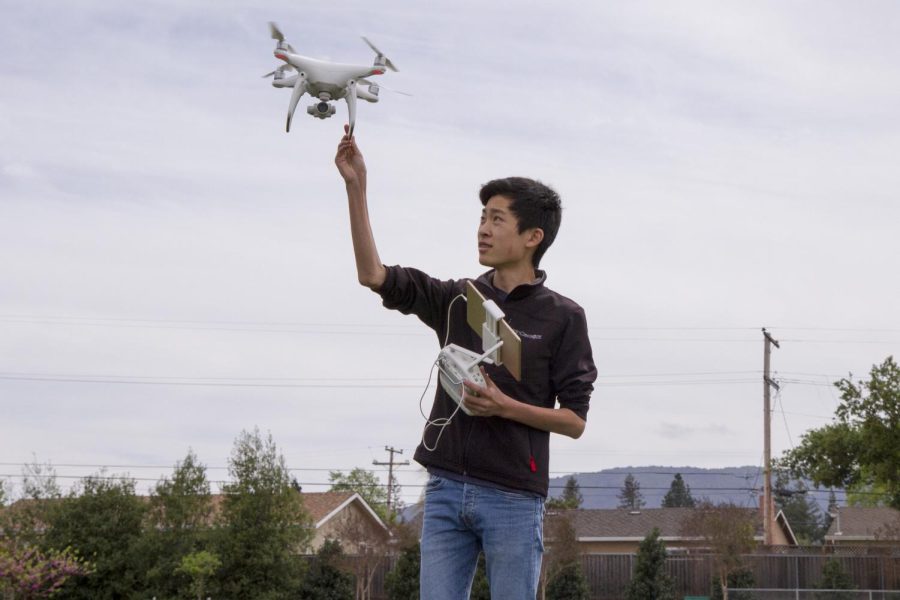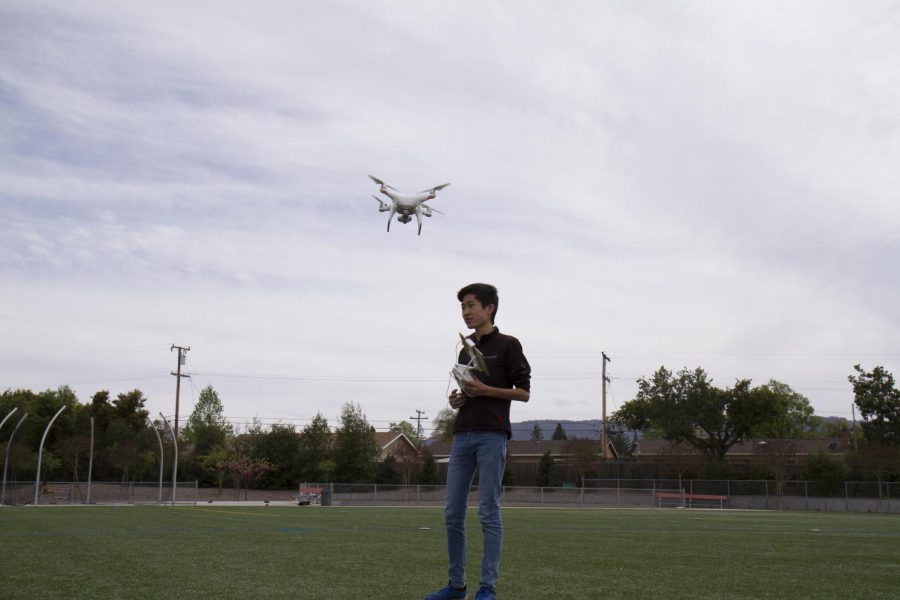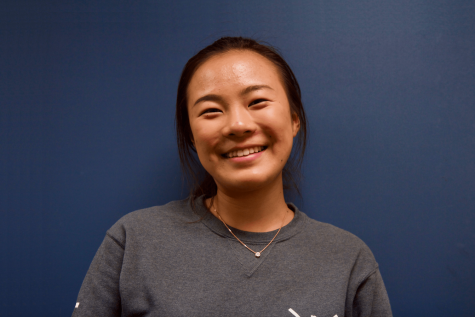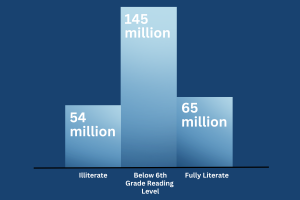Maxwell Wang flies to new heights with drones
April 26, 2018
Junior Maxwell Wang’s hands move quickly over the buttons of his controller, checking the drone’s battery level and connection signal. The drone’s propellers quickly pick up speed, levitating it away from the rushing river. He dips the drone under a large tree branch, being careful to survey the surroundings the drone is flying in. Standing on the top of the mountain, Wang squints into the distance before seeing the drone finally emerge from the treetops below.
Ever since receiving a remote controlled airplane in the seventh grade, Wang has dedicated hundreds of hours to learning the technology and engineering behind drones and film equipment and has created numerous short films using drone technology. Through trial and error and multiple crashed flights, Wang has gone through an arduous journey to learn the tricks of the trade. Now, Wang brings his camera and film equipment wherever he goes.
“A lot of the learning process comes from just mostly guessing and checking as well as using online forums,” said Wang.
After years of practice, Wang has developed knowledge and expertise about drone technology and film that have allowed him to expand his passion to pursuing business opportunities, working at or with several companies. In the summer of 2017, Wang was employed at Zero Zero Robotics, which created the Hover Camera Passport, as a part of the repair and distribution management team. He conducted general disassemblies and repairs, fixing drones and helping customers. Wang currently does independent drone repairing, contracting and consulting, in addition to creating animations and films for various companies such as UAVfutures. He typically takes on 5 to 20 commission projects at a time.
In addition to recreationally flying drones with juniors Alex Chang and Gaurav Vipat, Wang co-founded a Teens for Dreams program with junior Jason Dong. Through the program, they host bi-weekly workshops to teach others about drone technology and filmmaking. Each workshop includes presentations and live demonstrations.
The technology and machinery aspect behind drones and filmmaking is what attracts Wang the most. Wang uses a traditional digital single-lens reflex for ground filming, a race drone to capture faster targets and a DJI Phantom 4. To edit his films and create animations, Wang uses Adobe Premiere Pro, Adobe Illustrator, Photoshop and After Effects.
Wang has not only gained knowledge about film editing and drone technology but has learned patience and persistence through his endeavors. Since flying drones consists of laborious trial-and-error, it can be frustrating and demoralizing at times.
“The most difficult part are the crashes,” said Wang. “The better you get, the more you crash because you think you’re getting better and you try more daring things when you aren’t better and you are just trying stupid things. After you crash, you want to give up because you just wasted a lot of money, resources and time on something that just flew itself into the ground. It’s really hard getting back from that and to find the motivation to keep going after everything you’ve worked for in the last month just exploded in your face.”
What has encouraged Wang to continue honing his craft is the support of his friends and family. As co-president of the Film Club, he currently works with members to undertake various video projects and introduce new film styles to other students.
“Maxwell brings a certain energy to every one of our projects,” said junior Film Club co-president Thomas Lin. “Whether it be on set or in a meeting, he has a way of just getting everyone excited and energized. His enthusiasm is apparent as the crew takes on a similar mindset of unwavering hope.”
While unsure where this passion will take him in future, Wang hopes to continue furthering his expertise and take on more video projects this year, in addition to collaborating with more companies.
“This really is a difficult career choice because the market is rather niche and very competitive for both drones and video production,” said Wang. “The overlapping field of aerial cinematography is expanding; however, it will be challenging to use it as a tool for admissions or a job. I hope that in the future, I’ll have the opportunity to apply my passion for drone and filmmaking to my career, and if not, it will always be a cherished hobby.”





























































